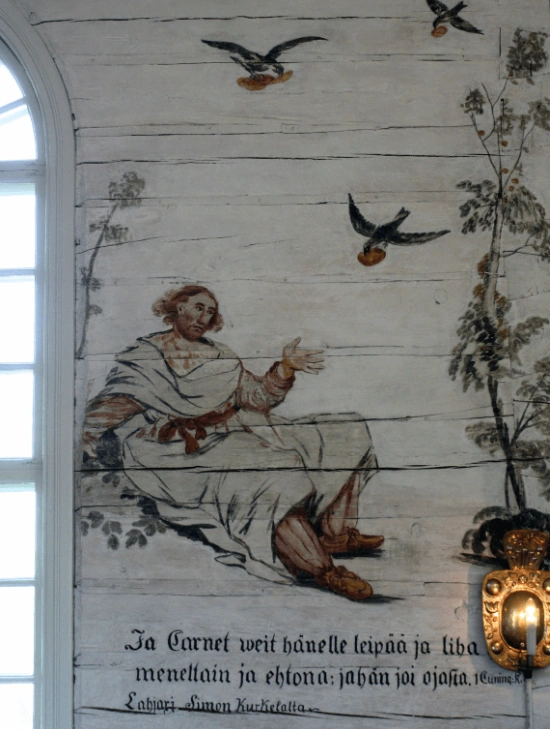10090. 'And it shall be the portion for you' means transmission to those who are governed by God's truths. This is clear from the representation of Moses, whose portion the breast was to be, as the Lord in respect of Divine Truth, thus Divine Truth which comes from the Lord, dealt with in 6752, 7010, 7014, 9372; and from the meaning of 'being the portion for' as transmission, since those parts of sacrifices that were given to Moses, Aaron, his sons, and the people were signs of the transmission of what was Divine and holy with them. And all transmission takes place in accord with the character of the recipient, thus in accord with the character of the representation among those who were the recipients.
[2] The reason why the breast was apportioned to Moses and the flank, spoken of a little further on, to Aaron was that the subject at present is the transmission of Divine Truth and Divine Good from the Lord in heaven and in the Church, and their making that Truth and Good their own. These two - Divine Truth and Divine Good, both of which come from the Lord - are what are received there, Divine Truth by those in the Lord's spiritual kingdom and Divine Good by those in the celestial kingdom, see the places referred to in 9277, 9684. This explains why the breast was apportioned to Moses and the flank to Aaron, for 'the breast' means Divine Truth in the Lord's spiritual kingdom, 10087, while 'the flank' means Divine Good in the celestial kingdom, 10075, as also does 'the bread in the basket', which too was assigned to Aaron, 10077.
[3] As was shown just above, Moses represented the Lord in respect of Divine Truth; and Aaron, when consecrated to the priesthood, represented the Lord in respect of Divine Good, see 9806. The fact that the breast was assigned to Moses as his portion is clear in Leviticus, where again the consecration of Aaron and his sons to the priesthood is the subject,
Moses took the breast and waved it as a wave offering before Jehovah, from the ram of fillings [of the hand]; and it was Moses' portion, as Jehovah had commanded Moses. Leviticus 8:29.







